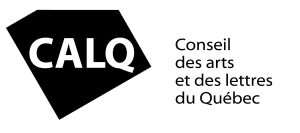1. Program Description
The Dancer Training Support Program is an essential tool for improving the socio-economic conditions of dancers, choreographers and rehearsal directors.
Since February 1994, the Program has been assisting active dancers – as well as choreographers and rehearsal directors since 2021 – to cover part of the cost of dance training, an essential condition for the practice of their profession, whether they are in a period of rehearsal, performance, unemployment or social assistance. This support takes the form of financial aid paid directly upon presentation of the training receipts.
The Program’s objectives are the following:
- Value the profession of dancer, choreographer and rehearsal director
- Improve the social-economic status of dancers, choreographers, and rehearsal directors
- Maintain optimal employability conditions
- Improve and maintain fitness excellence
- Reduce the risk of injuries
2. Eligibility Requirements
To have access to the Training Support Program, dancers, choreographers, and rehearsal directors must:
- Be a current member of the RQD when filling out the eligibility application
- Submit an eligibility application for the Program on every membership renewal through the RQD’s membership application form
- Meet the admission requirements for their membership category (see 2.1)
- Send the required supporting documents through the membership form (see 2.1)
- Meet the criteria of status from the Conseil des arts et des lettres du Québec that stipulates the requirement to have Canadian citizenship or permanent residency as described in Article 2(1) of the Immigration and Refugee Protection Act. In both cases, you must live in Quebec and have resided in the province in the last 12 months. If you reside outside Quebec for more than two years, you are not admissible unless you kept your status as a Quebec resident. In that case, you need to demonstrate your eligibility by confirming your participation in Quebec’s public health insurance plan.
Even as a first-time member of the RQD, dancers, choreographers, and rehearsal directors can benefit from the Program as soon as they are admitted.
Upon renewal of membership, eligibility for the Program takes effect on the date that the RQD receives the membership fee payment. Each member must have renewed their membership on their own annual renewal date to avoid any interruption in the processing of claims. Therefore, training expenses incurred between their membership expiry date and their renewal date are not eligible for reimbursement.
2.1 Admission Requirements
2.1.1 Apprentice Member
Must have completed, between 2018 and 2023, an initial dance training at a professional-level institution or have training deemed equivalent.
Supporting document required:
- A copy of a diploma or Attestation of Collegial Studies (ACS) or academic transcript confirming the reception of the latter.
OR
- Submit a detailed training program form that specifies in detail all the classes and/or workshops attended.
2.1.2 Professional Individual or Corporate Member
Must have accumulated, between 2018 and 2023, a minimum of eight (8) paid[1] and professional[2] performances, including cancelled contracts.[3]
OR
Must have accumulated, between 2018 and 2023, at least 200 hours of paid work as a dancer, choreographer, or rehearsal director, in a dance context of research, creation, or revival that did not lead to performances.
Supporting documents required:
- Copies of letters of agreement or signed contracts. (See model of paid services confirmation.) Proof of intent to hire (email correspondence) is equally accepted. [4]
3. Special Cases
Individual or corporate members who receive support for their training on a regular basis from their employer (financial support or training classes) are eligible for the Program and can file reimbursement claims for training not covered by their employer. Supporting documents required: Signed contract or attestation from the employer specifying the financial support in detail or training covered.
An individual or corporate member who is inactive due to, for example, a prolonged work stoppage may be eligible for the Program following a case-by-case evaluation.
4. Reimbursed Training
In addition to the usual criteria, other specificities apply:
- Are eligible for reimbursement: classes, workshops, subscriptions, and training programs taken in person, online, from Quebec, Canada, or anywhere in the world, EXCEPT those already subsidized by Services Québec (Emploi-Québec).
- Receipts must be official, detailed, and validated by the organization or professional offering them.
- Fees for fitness assessments, studio rentals, or training equipment are not refundable.
- No voluntary contributions will be refunded.
5. Sums Reimbursed
| Apprentice Member | Professional Individual or Corporate Member |
|---|---|
| Classes, workshops, and subscriptions: 50% of the cost (before taxes) Up to a maximum of $600 per year, subject to the financial availability of the Program. | Classes, workshops, and subscriptions: 50% of the cost (before taxes) Up to a maximum of $700 per year, subject to the financial availability of the Program. |
The RQD reserves the right to modify the reimbursement scales throughout the year, depending on the financial resources available.
6. Reimbursement Procedure
To obtain a reimbursement, members must:
- Submit an expense claim form in your member space
- Submit compliant and detailed receipts in the same form. Please note that transaction records by debit or credit card will not be accepted.
- Members have three months from the date of payment for their activity to submit a claim to the RQD.
The RQD issues reimbursements by direct deposit only. Members admitted to the program must submit a void cheque in the expense claim form. The processing time for claims is around 30 days.
7. CNESST Coverage of Dancers in the Event of an Injury or Accident
As of January 2006, following the Regulation respecting the implementation of the Agreement on the professional dance training program in the context of the Act respecting occupational health and safety, dancers admitted to the Dance Training Support Program are covered by the CNESST in the event of an injury or accident occurring during training that is not part of an employment contract.
7.1 Conditions for Being Covered by the CNESST
CNESST coverage under the Program applies only to dancers. Choreographers and rehearsal directors are not covered by the CNESST in the context of the Program.
Trainings must meet the following strict conditions:
- Specialized dance training sessions.
- Supervised training sessions.
- Training sessions followed in person, in Quebec.
Warning:
Training followed online as well as training followed in person outside Quebec is not covered.
Training under the previously stated conditions is at your own risk. Consider purchasing insurance for yourself and be very careful!
To be covered by the CNESST, dancers must first be admitted to the Program, after having submitted an eligibility application through the RQD’s membership application form online (see 2 – Eligibility Requirements).
7.2 What to Do in Case of Injury
To know the procedure to follow in case of injury, please consult the Dancers: Procedure for dealing with the CNESST page or contact the RQD at info@quebecdanse.org. Requests for coverage will be treated in the strictest confidence.
This program receives the financial support of the Canada Council for the Arts, the Conseil des arts de Montréal, and the Conseil des arts et des lettres du Québec.


[1] Activities that took place in an academic or amateur context will not be recognized in the calculation of eight performances. [2] A performance is deemed professional when it is presented by artists recognized as professionals by peers, in an event also recognized as professional. [3] Due to the closure of performance venues between 2020 and 2022, the RQD accepts performances over a 5-year period instead of 2 years, not consecutive. [4] Contracts canceled due to COVID-19 remain valid and may be submitted as supporting documentation. Promotional content (programs, posters, website excerpts, etc.) is not considered admissible evidence.

